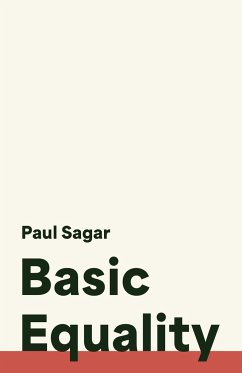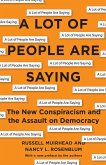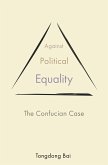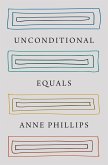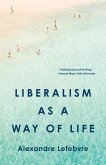"Although thinkers of the past might have started from presumptions of fundamental difference and inequality between (say) the genders, or people of different races, this is no longer the case. At least in mainstream political philosophy, we are all now presumed to be, in some fundamental sense, basic equals. Of course, what follows from this putative fact of basic equality remains enormously controversial: liberals, libertarians, conservatives, Marxists, republicans, and so on, continue to disagree vigorously with each other, despite all presupposing some kind of basic equality. They may argue about who gets what, how much, and why, but the starting point - that all people are in some sense deserving of prima facie equal consideration - has become an axiom of our moral and political thinking. But why? Why are we basic equals? The trouble is that as soon as one asks for an explanation of this foundational premise, it begins to look shaky. After all, on any conceivable metric human beings are notably unequal, and often to striking degrees. Philosophers in this area tend to talk of equal worth, but often without trying to specify what exactly that means. Philosophically, basic equality is neither acceptable nor rejectable. It is not rejectable because we appear to be, as a matter of fact, profoundly committed to the truth of the claim that we are all one another's basic equals. But to the extent that there appear to be no philosophical arguments for believing in the truth of basic equality, it is not acceptable either. The aim of this book is to try and show why basic equality is acceptable. To do so, however, it will also contend that we need to approach the question rather differently to how it has mostly been handled so far. What's required is an exercise in what Bernard Williams called 'impure philosophy': it must include insights from other areas of human intellectual endeavour, whether psychology and history or even what we learn from how we go about practicing basic equality in our collective lives"--
Hinweis: Dieser Artikel kann nur an eine deutsche Lieferadresse ausgeliefert werden.
Hinweis: Dieser Artikel kann nur an eine deutsche Lieferadresse ausgeliefert werden.

